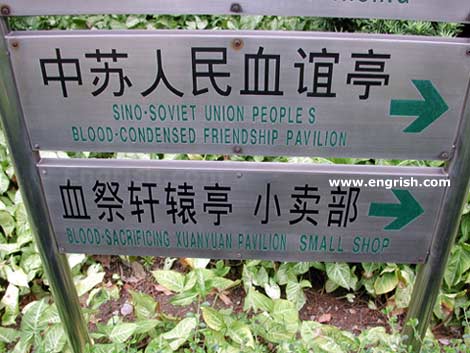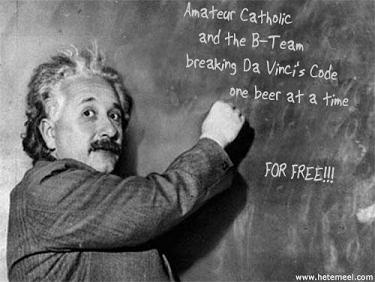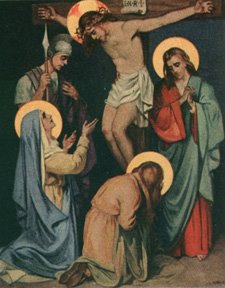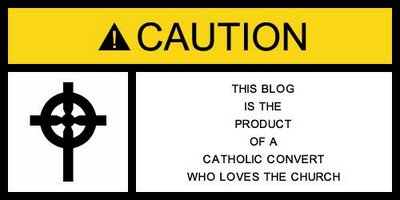What the heck is a solemnity?How handy that I remembered having posted about this ... and found it way back at the beginning of 2005. How time flies!
I'll put it all below as I found it interesting to read through again. NOTE: Fr. Stephanos made some good comments that I am using to amend the excerpt below. His comments are italicized.
We got our new Church calendar a week or so ago. Tom immediately started comparing it to the one he has set up for our church's web site (he's the web servant). Then the question arose as to what all those saint day celebrations actually meant ... solemnity, memorial, optional memorial ... what's the difference?
Here is a great source that answers all those questions. From most important to least here is what all those celebrations are:SOLEMNITY
A Solemnity of the Roman Catholic Church observes an event in the life of Jesus, Mary, and the saints, beginning on the evening prior to actual date. Solemnity is made up of Latin words solet and annus, meaning a yearly (annual) celebration. They are observed throughout the entire Church.
A solemnity can be observed like a Sunday: it has vigil Mass the evening before. Also, any solemnity that coincides with a Sunday can take the place of the Sunday (but not during Advent and Lent).
Solemnities observed by the Roman Church
- January 1: Mary, Mother of God (formerly known as the Feast of the Circumcision)
- Sunday between Jan 2 & 8: Epiphany, in United States only; elsewhere January 6
- March 19: Joseph, Husband of Mary
- March 25: Annunciation
- March/April (varies): Easter Triduum
- 40 days after Easter: Ascension of the Lord
- 50 days after Easter: Pentecost
- Sunday after Pentecost: Holy Trinity
- Sunday after Holy Trinity: Body and Blood of Christ (Corpus Christi)
- Friday after Body & Blood: Sacred Heart
- June 24: Birth of John the Baptist
- June 29: Peter and Paul, Apostles
- August 15: Assumption of Mary
- November 1: All Saints
- November (varies, always Sunday): Christ the King
- December 8: Immaculate Conception
- December 25: Christmas
FEAST
Religious feasts celebrate or commemorate certain concepts or events in the history of their respective religion with particular traditions and rituals.
A feast can take the place of a Sunday only if the feast is a feast of the Lord himself. For example, the Feast of the Transfiguration of the Lord (August 6) or the Triumph of the Cross (September 14).
MEMORIAL
In the Roman Catholic Church, a Memorial is a feast day of relatively low importance. However, all priests must recall the saint commemorated in their Masses and the Liturgy of the Hours.
OPTIONAL MEMORIAL
In the Roman Catholic Church, an optional memorial is the lowest class of the feast day. The priest is permitted to celebrate the feast day or not as he chooses. (See Memorial.) The saints or events celebrated in these feast days are considered to be of less universal importance to the Church. In addition, as long as no feast day of higher rank is foreseen for a particular day, a priest is permitted to celebrate a feast day that does not appear in his local calendar as an optional memorial, normally out of personal devotion to the saint.
Something that I thought was very interesting was that our calendar has on every month in capital red letters FRIDAY REMAINS A SPECIAL DAY OF PENITENTIAL OBSERVANCE. I have read in several places that although there is no stricture specifically against meat on Friday anymore this is merely so that people can put their own memorial penitence into place. As one source said (wish I could remember which), most people will find that the easiest one to implement is abstinence from meat ... and this is true in our household. After Rose suddenly held my feet to the fire about Friday penitence about two months ago we have done our best to just keep meat out of the diet on that day. It's amazing how difficult that can be and also amazing how it does a good job of reminding you why you are observing that penance.











